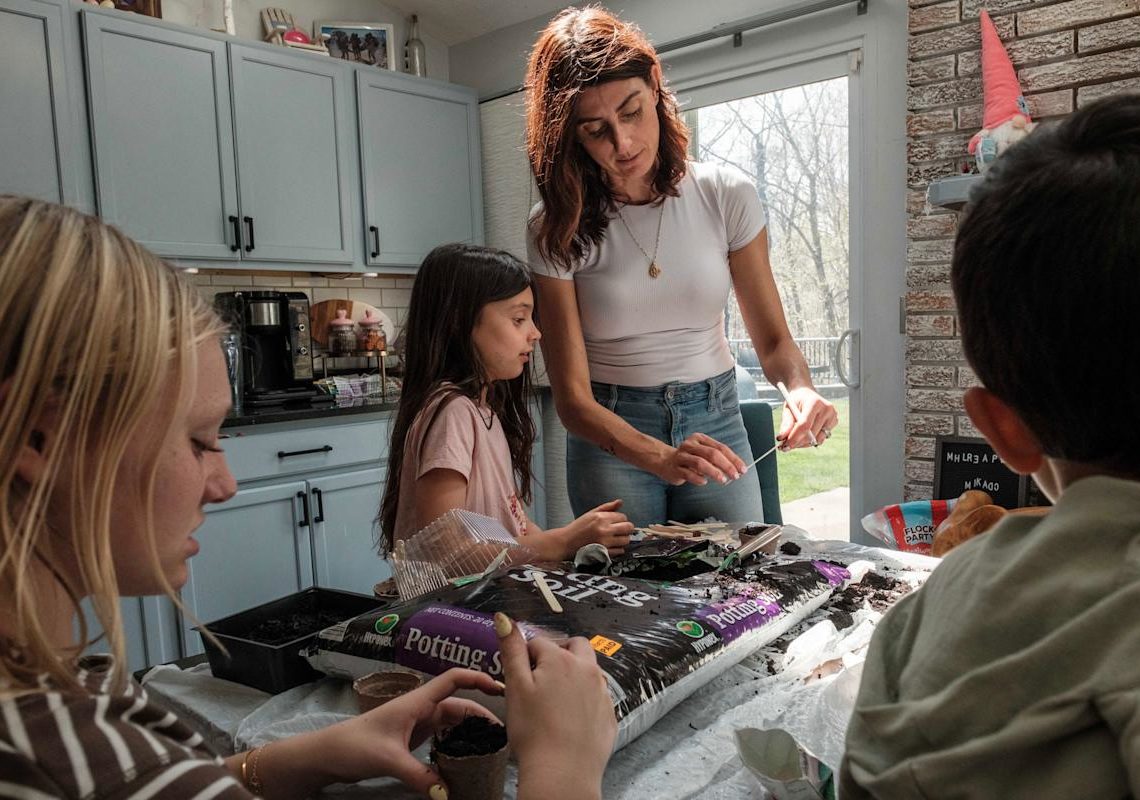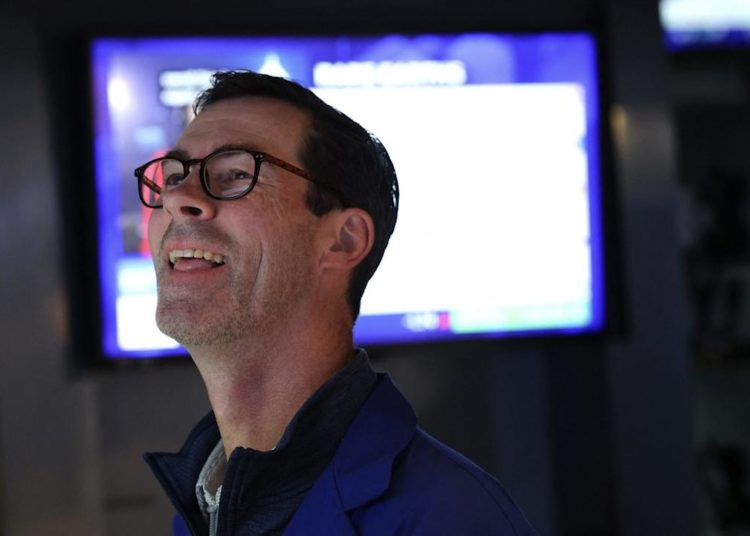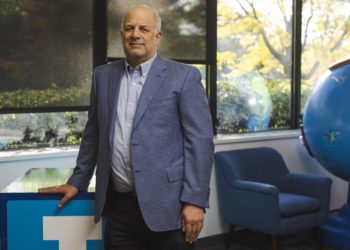They say the food industry is putting pesticides, dangerous food dyes and other toxic chemicals into the U.S. food supply. They eschew highly processed foods, raise chickens and grow organic vegetables in their backyards. Some call themselves “crunchy moms,” a term once linked with 1970s liberal environmentalists.
But these aren’t traditional, left-wing environmentalists. They are the moms in the “Make America Healthy Again,” or MAHA, movement: They lean conservative, distrust vaccines and support Health and Human Services Secretary Robert F. Kennedy Jr. And they are changing what it means to be an environmentalist in the United States – and generating growing momentum to change the country’s food system.
“This perception that the food industry specifically is exploiting families to profit over children’s health – you can see roots of that from long ago, looking at grassroots campaigns in Berkeley,” said Lindsey Smith Taillie, a professor of nutrition at the University of North Carolina at Chapel Hill. “And that’s the same kind of mindset that you see today with MAHA.”
The MAHA label sprang into existence during the presidential election last year. When Kennedy dropped out of the race and threw his support behind Donald Trump, he did so with the tagline “Make America Healthy Again,” transforming his concerns about the nation’s food and vaccine policies into a bite-size, Trump-friendly slogan.
“We’re going to become, once again, the healthiest nation on Earth,” Kennedy said at the time. “That’s what we mean by ‘MAHA.’”
Over the next few months, the label surged in conservative political circles, according to a Washington Post analysis of social media posts. As Kennedy was folded into Trump’s orbit, MAHA became a way for members of the movement to recognize one another and share their support for Trump.
But the movement had begun building years earlier, as parents became increasingly concerned about highly processed foods and vaccines. Over the past three decades, the rate of obesity has more than doubled in children and tripled in adolescents; the rate of Type 2 diabetes in children and adolescents doubled between 2002 and 2018. Many self-proclaimed crunchy moms started voicing concern about the downturn in children’s health, linking obesity to ultra-processed foods and food additives, and blaming the rise in documented autism cases on vaccines.
Epidemiologists and public health experts say there is no evidence that vaccines cause autism, citing overwhelming scientific data that there is no link between the two. Ultra-processed foods, on the other hand, are consistently linked to obesity and other metabolic issues. These foods also make up approximately 70 percent of American children’s diets.
“This is an issue that has been bubbling underneath the surface for a long time,” said Melanie Benesh, vice president of government affairs at the Environmental Working Group, which advocates for the removal of food dyes and other chemicals from the food supply.
“Originally, I felt like I was the only one doing it. I didn’t see anybody else doing it online,” said Gretchen Adler, a mother in San Diego’s La Jolla area. She uses her Instagram account to post meals that she cooks from scratch to her more than 450,000 followers, even replicating popular snacks such as Goldfish and Cheez-It crackers.
During the coronavirus pandemic, concerns about children’s health kicked into higher gear. Conservative parents questioned the need for vaccine mandates and grew suspicious of medical science. Conspiracy theories surged.
“After the pandemic, all these people concerned about medical freedom, health sovereignty – they coalesced, in a way, they had more energy,” said Holly Jean Buck, a professor of environment and sustainability at the University at Buffalo.
April LoConti, a hair salon owner, real estate agent and mother of two, spent most of her life trusting scientists and the medical system. Her children were vaccinated on the typical schedule, and she believed in Western medicine. But after a breast implant surgery, she began to have migraines and vertigo every day, for months. Doctors were baffled, and she was shuffled from one expert to the next.
“I was trying to find out what was wrong with me, and I went down rabbit hole after rabbit hole,” she said. “I’m begging people to help me.”
LoConti now thinks her illness was mostly environmental, caused by heavy metals in her breast implants and mold that she discovered in her home. The experience propelled her to research other toxic substances that could be in her home and food, and led her into a new world – one where she sees food as one of the key causes (and cures) for medical ailments.
Now she grows vegetables in her backyard, raises chickens and tries to make most foods from scratch. “I’m living low-tox,” she said. “I’m like, ‘What’s in your house? What can you do in your everyday life so you don’t end up down the Western medicine hole?’”
In some ways, the MAHA movement and environmentalism overlap. Both MAHA moms and environmentalists think government agencies have been captured by powerful corporate players – particularly the food industry. Both worry about heavy metals, chemicals from plastics and petroleum, and other pollutants entering the food and water supply.
There, however, the similarities end. Environmentalists tend to be aligned with mainstream science: They generally support vaccines and masking to avoid illness and the coronavirus, and they want stronger regulations. Historically, environmentalists are more willing to subordinate individual needs for collective needs – driving or flying less to reduce carbon emissions, for example.
MAHA moms, on the other hand, are often more focused on how individuals can navigate what they see as a corrupted system. “It seems to be really individual-centered: ‘How does the food industry affect my kid?’” said Taillie, the UNC professor. While traditional environmentalism focuses on risks to communities from air pollution and climate change, Taillie said, the MAHA movement focuses more narrowly on risks in the household.
MAHA also has links with wellness culture and social media influencing. Some MAHA moms critique ultra-processed foods and products while directing followers toward what they see as more holistic or healthful brands. Others use their emphasis on cooking and homesteading – raising chickens, goats and cows – to create a large social media following.
Brandy Bright, a MAHA mom in Myakka City, Florida, who co-hosts a podcast with LoConti, doesn’t consider herself an environmentalist. For Bright, who goes by Brandy Lemire on social media, the focus on climate change is a sign of how people have grown to accept – or ignore – the chemicals right around them. “There’s a lot of issues with toxins, whether it’s food or vaccines or chemicals in our homes,” she said. “People focus on these bigger issues because they don’t even see the smaller issues.”
Still, the movement also supports policies that some would associate with traditional liberal environmentalism. Many MAHA activists want food regulations in the U.S. to look more like the European Union. According to one estimate, the U.S. allows 950 additives in the food supply that are not permitted in Europe.
In an email, a Health and Human Services Department official said that since taking office, Kennedy has met with food industry CEOs to find ways to eliminate harmful food additives and dyes from the food supply, directed federal agencies to examine chemicals in America’s food, and celebrated West Virginia banning some food dyes.
Taillie said some aspects of the movement align with what nutritional experts encourage: avoiding ultra-processed foods and foods that have long lists of hard-to-pronounce ingredients. However, some of MAHA’s food concerns, she said, are not backed up by science.
“The MAHA movement has a hyperfocus on a very narrow set of additives,” she said, pointing to concerns over food dyes and seed oils. “If you ask me what would be the one thing that we need to do in order to prevent obesity and Type 2 diabetes – removing food dyes would be way down on the list.”
Seed oils, she added, are common in ultra-processed foods, which is why they can be correlated with health harms. But isolated seed oils in fresh foods, Taillie said, are considered healthy and even recommended by nutritionists.
That focus on food dyes has already been visible in the new administration. On Tuesday, Kennedy announced he would phase out petroleum-based food dyes, saying that rather than imposing a ban, he had reached an “understanding” with food companies and they would begin moving away from the ingredients.
Melissa Hockstad, president and CEO of the Consumer Brands Association, a trade group for the food industry, defended them even as she indicated that the industry is moving toward alternative ingredients.
“The ingredients used in America’s food supply have been rigorously studied following an objective science and risk-based evaluation process and have been demonstrated to be safe,” Hockstad said in a statement.
Experts say the MAHA movement could represent a moment of bipartisan agreement to address the nation’s food supply. “People regardless of party are right to demand healthier food,” said Scott Faber, senior vice president of government affairs at the Environmental Working Group.
Faber sees the move toward removing food dyes as mostly talk. “An agreement requires two parties,” he said in an email. “This is more like a marriage proposal that has not been accepted.”
Still, the mothers of the MAHA movement are excited about the change. “Moms like me have been waiting for this for years,” Bright said. “It’s a step in the right direction.”
Taillie worries that, under Kennedy and Trump, any changes may not be based on scientific evidence – exchanging one ingredient for another, for example, while ignoring the problem of too much sugar and too many processed foods in Americans’ diets. “It’s possible for it all to be nothing but a smoke screen,” she said.
Faber pointed out that the Trump administration recently laid off 3,500 Food and Drug Administration employees – crippling the agency’s ability to monitor for foodborne diseases.
“People are right to worry that the government is putting industry science ahead of real science,” he said. “But we do not share their optimism that the Trump administration will deliver.”
Related Content
Freedom Riders faced a mob at this bus station. DOGE wanted to sell it.
The Abrego García case: A timeline and assessment of key documents
Trump brushes aside courts’ attempts to limit his power
The post ‘MAHA moms’ are pushing for changes to America’s food system appeared first on Washington Post.




